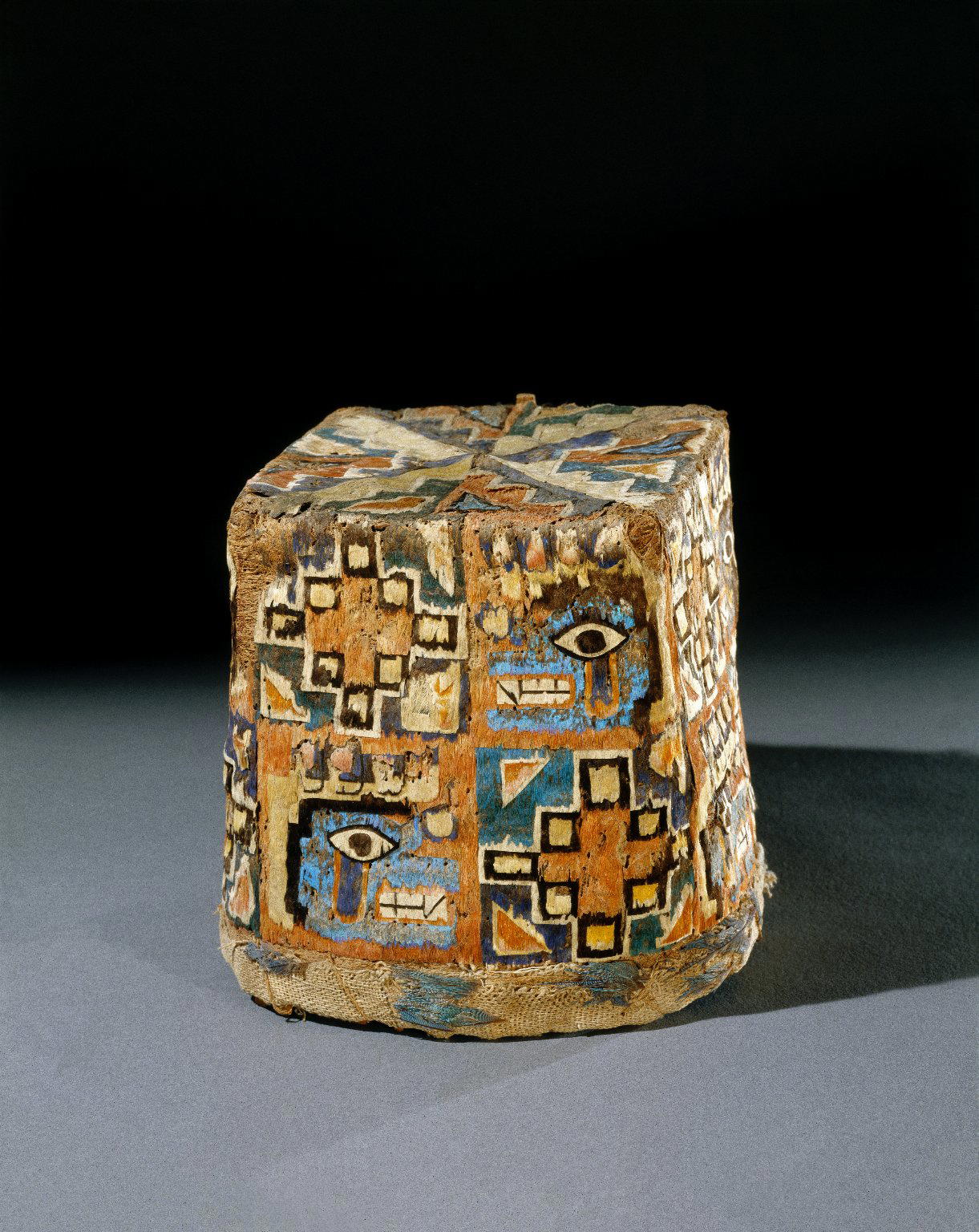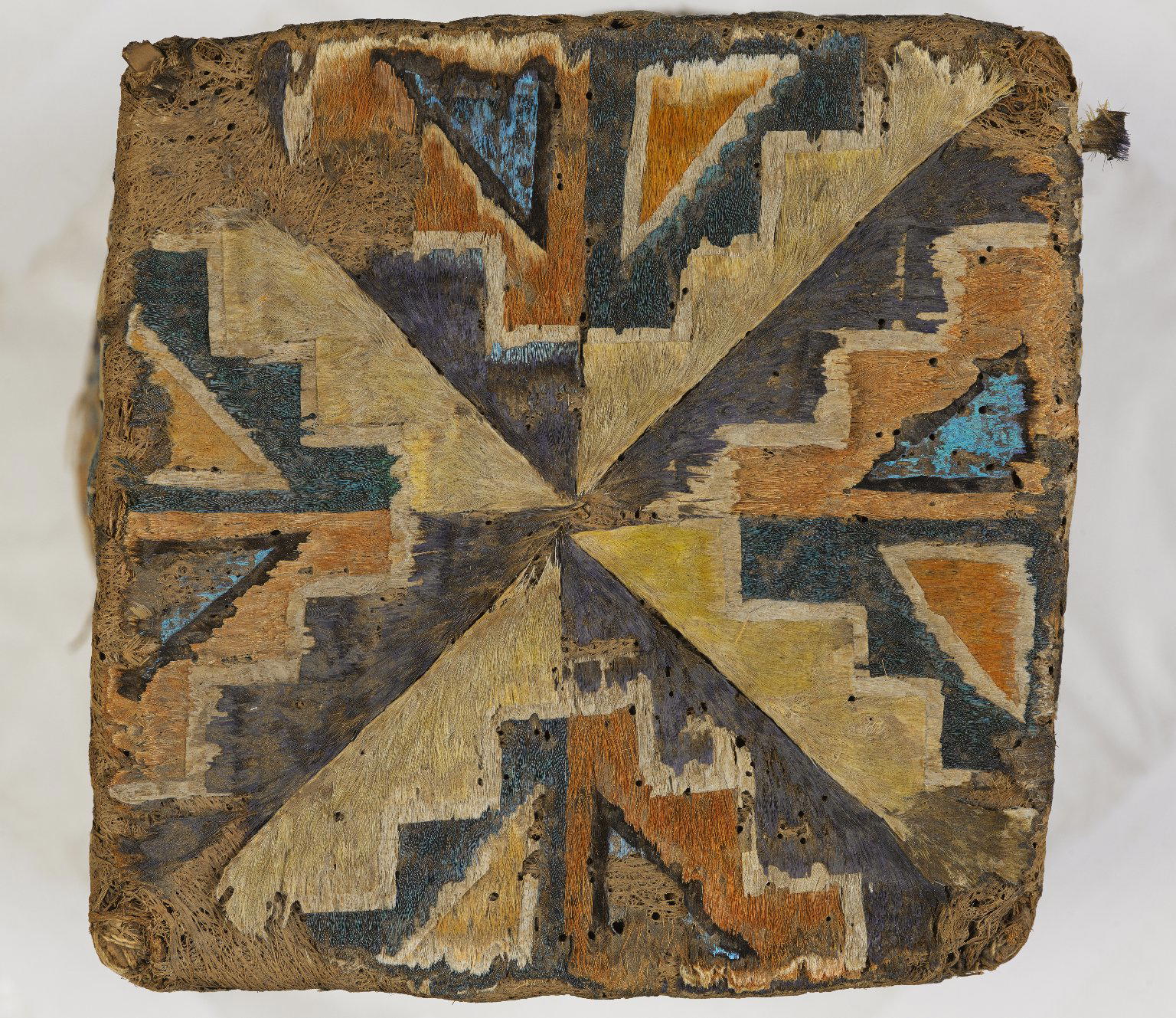Four-Cornered Hat
Wari
1 of 3
Object Label
While square hats are characteristic of the Wari culture, they are usually made of camelid fibers. On this hat, feathers have been attached to a cloth and reed foundation and cut into a mosaic design to create a headdress of exceptional brilliance and beauty. The motifs are similar to those found on fiber hats and other Wari textiles: profile feline heads alternate with a four-part design composed of squares and triangles, repeated on all four sides. The Wari, like other ancient Andean peoples, valued tropical forest birds for their bright, iridescent plumage. They probably considered feathered garments such as mantles, tunics, and headdresses to be high-prestige items because feathers and live birds had to be imported from the distant Amazon jungle. This headdress with vivid mosaic work was probably worn for ceremonial occasions.
Caption
Wari. Four-Cornered Hat, 650–1000. Cotton, reed, feathers, 6 11/16 x 5 1/2 x 5 1/2 in. (17 x 14 x 14 cm). Brooklyn Museum, A. Augustus Healy Fund, 41.228.
Gallery
Not on view
Collection
Gallery
Not on view
Collection
Culture
Title
Four-Cornered Hat
Date
650–1000
Period
Middle Horizon Period
Geography
Place found: South Coast, Peru
Medium
Cotton, reed, feathers
Classification
Dimensions
6 11/16 x 5 1/2 x 5 1/2 in. (17 x 14 x 14 cm)
Credit Line
A. Augustus Healy Fund
Accession Number
41.228
Have information?
Have information about an artwork? Contact us at


